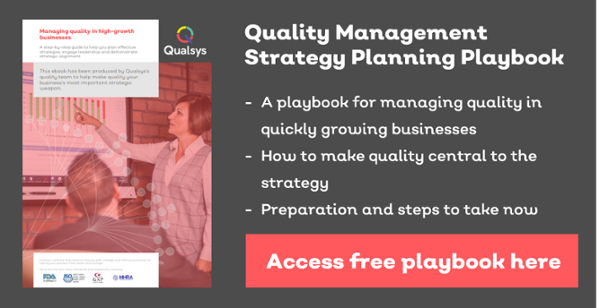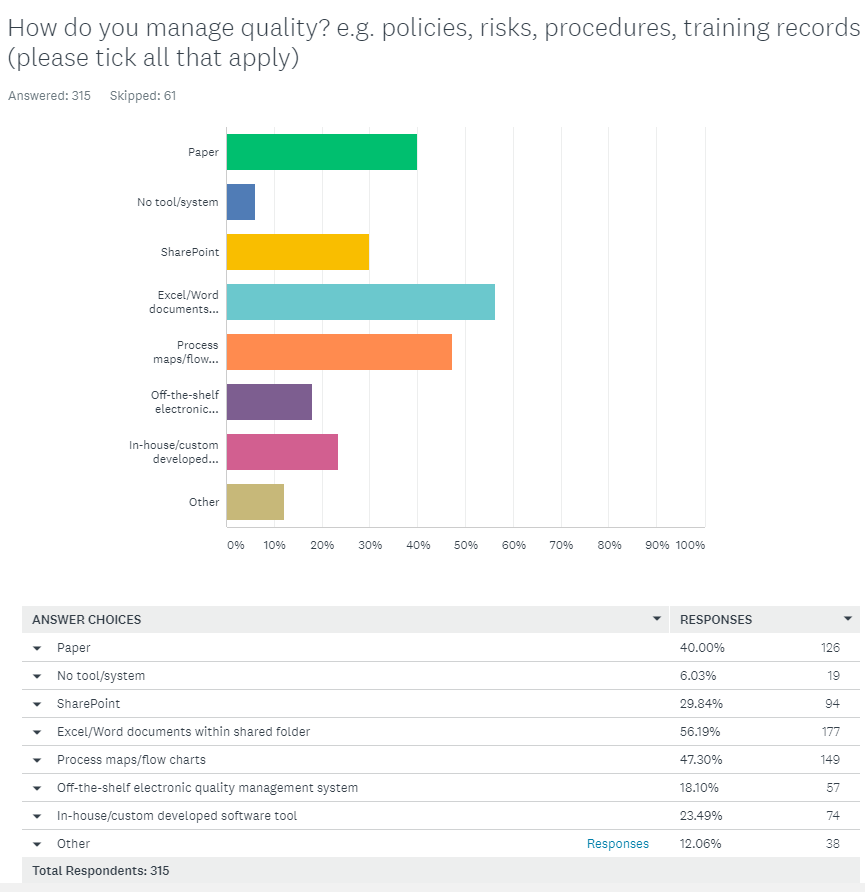Want to contribute to this article?
Do the same mistakes keep on being repeated?
Is there lack of visibility between each of your departments?
Do you have a high customer churn rate, negative customer reviews or perhaps a declining bottom line?
If you answered yes to any of the above, it may be that your quality management system is not working as it should be.
The purpose of a quality management system is to ensure every time a process is performed, the same information, methods, skills and controls are used and applied in a consistent manner. If there are process issues or opportunities, this is then fed into the quality management system to ensure continuous improvement.
ISO 9001:2015 provides a strategic framework for quality management systems. ISO 13485:2016 is the medical device quality management system. There is a full list of the different types of quality management systems here.
The concept of a quality management system is quite difficult for many people to understand, and there is much confusion and myth surround it.
Download the 'Quality Management System: A beginner's strategy playbook' to develop a step-by-step QMS action plan, or continue reading for:
- What a quality management system actually is: Why you need a quality management system: what it is, and what it isn't
- How each stakeholder group / department benefits from a quality management system
- Tool to use for your quality management system
How you gather, manage and use information will determine whether you win or lose.
- Bill Gates.
What do people mean by a QMS?
A well implemented enterprise QMS helps an organisation to gain control, confidence and improve communication.
When people talk about QMS, they might mean any of three things:
QMS as technology: this is a technology product, often in the cloud, that teams use to record, report and analyse processes. EQMS by Qualsys is the UK's favourite quality management software tool.
QMS as a strategy: This is a business' philosophy about how processes and procedures should be managed.
QMS as a process: Think of this as a system the business adopts to nurture and manage information.
What does QMS software do?
QMS software provides a central tool for all customer feedback, issues, policies, suppliers, documents, risks, incidents, training records, equipment, audits and inspections. It can also automatically pull in other information, such as data from ERP or mobile applications, and it can send notification such as review requests, change updates and alerts.
A QMS organises this information to give each person access to their own custom to-do list. Permissions control who sees what and when. a complete record business processes, so you can better understand improvement initiatives.

Why is a QMS important?
A QMS enables a business to protect it's reputation, accelerate change and meet the customer needs.
Governance, risk and compliance best practice
Furthermore, also provides protection in the face of litigation. A single view of decisions, records and audit trails provides reduces legal risk, lowers the costs of finding and holding content - for a defensible business.
More information here: https://www2.deloitte.com/content/dam/Deloitte/lu/Documents/risk/lu_en_ins_governance-risk-compliance-software_05022014.pdf
How do different business functions benefit from using QMS?

While the importance of QMS has traditionally been as a quality, audit and risk tool, some of the biggest gains come in other areas, such as leadership, customer service, sales and marketing, procurement, and HR.
This has actually led to many organisations dropping the word 'quality' from 'QMS and rebranding it as the business management system.
Here's how different business functions benefit from using quality management system:
Customer service teams
Many customer service teams are set up to fail. There is a culture of keeping the issues and information around customer complaints or feedback solely within the customer service team.
Yet everyone benefits when there is a horizontal process. This means actually resolving the issue - not just sending a new product. Most organisations which manage customer feedback in their QMS reduce the number of complaints and issues raised because there is a pre-emptive approach, the root cause is addresses and there is a culture of openness and collaboration.
HR
The QMS speeds up the on-boarding process, automating the process of training record management, analysing resource needs and identifying training gaps.
Sales and marketing teams:
If you're the fastest, best-performer, longest life product on the market - your sales and marketing team want to know. And they want to know the details so they can back up their communications with data and examples.
How can an organisation know what their unique competitive advantage is, without getting the information from the quality management system?
Procurement
Track supplier performance, credentials, information, add useful notes, and see the audit results.

What are the benefits of QMS software?
The benefits and advantages of QMS include:
- Prevent costly mistakes
- Protect your reputation
- Respond to incidents in real time
- Automated workflows improve communication flow
- Enhanced process management
- Heightened productivity
- Empowered quality, risk, audit, and operations teams
- Accurate risk forecasting
- Improved quality metrics
- Increased customer satisfaction and retention
- Enriched products and services
- Win more business- certify to ISO standard more easily
- As a quality professional, you role is to accelerate change, reduce costs and protect the reputation.” – John Oakland, Oakland Consulting









Share your thoughts on this article